The Caribbean has given the world a wealth of superb writers. Some, like Junot Díaz, Nicolás Guillén, Alejo Carpentier, and Oscar Hijuelos are now household names in the US, but there are still a lot of gems to discover. In fact, between Cuba, Puerto Rico, Jamaica, Haiti, and the Dominican Republic, there is enough literature for book lovers to spend years reading only Caribbean authors and nothing else. I read Caribbean fiction throughout the year, but I've felt a stronger craving for it during the past few winters. Something about cold, gray days makes me long for the year-round warmth of home even more than usual. In any case, this is a list of great authors that you should check out any time of the year, but winter is the perfect time to get started.
![]() 10. Edwidge Danticat
10. Edwidge Danticat
I have mentioned Danticat in previous columns. Between the beautiful prose and soul-shattering themes she deals with, there is no excuse to skip her work (even if some of her novels are uncomfortable to read because they deal with the ugliest side of human nature). For a deep, painful look at the dealings of Dominican dictator Rafael Trujillo, I can't recommend The Farming of Bones enough, so get on it.
Photo: David Shankbone
![]() 9. Marlon James
9. Marlon James
This man is Jamaica's answer to Junot Díaz in the sense that he is a literary superstar. You can pick up anything James has written and be amazed by his talent, but A Brief History of Seven Killings is without a doubt the novel that launched him into the public eye. Sure, the novel is not exactly a beach read, but you won't be at the beach anyway, so dig in.
Photo: Larry D. Moore
![]() 8. Leonardo Padura
8. Leonardo Padura
Here's the thing: if you like crime/suspense/noir and you're not reading Padura, you're basically missing out on the Caribbean equivalent of Philip Marlowe, which is exactly what Padura's Mario Conde deserves to be called. Between the intricate plots, superb dialogue, and a Cuba that permeates the text in every way possible, Padura's novels bring the Caribbean to the reader and the reader to the Caribbean each and every time.
Photo: Peter Groth
![]() 7. Esmeralda Santiago
7. Esmeralda Santiago
This is a name almost every reader has encountered at least once. And there's a reason for that. Santiago sort of invented the type of memoir writing that pulls readers in and places them in very specific times and spaces while also talking about universal feelings—constantly pondering the effects of the past on the present and the way that which surrounds us affects everything we are. Go read her.
Photo: Larry D. Moore
![]() 6. Guillermo Cabrera Infante
6. Guillermo Cabrera Infante
Some authors play with language in ways that tattoo their writing on your brain. Guillermo Cabrera Infante is one of those authors. Weird, unique, and packed with humor, his work has been compared to that of James Joyce. Honestly? I prefer Cabrera Infante. Now go and jump into the magnificent strangeness that is Three Trapped Tigers.
Photo: Oto Vega Ponce
![]() 5. YOSS (José Miguel Sánchez)
5. YOSS (José Miguel Sánchez)
There is something really cool going on in Caribbean science fiction, something funny and different and brave, and that something is the work of YOSS. I could go on and on about the prizes he's received and the praise a plethora of venues have thrown at his books, but I'll keep it simple instead: reading Super Extra Grande was the most fun I've had with a science fiction novel in about three years.
Photo: Gamaliel
![]() 4. Julia de Burgos
4. Julia de Burgos
The poetry of Julia de Burgo's is, in many instances, a painful love letter to Puerto Rico. The way she wrote about nature changed the way I perceived poetry, and the way she died made Bukowski's life look like a picnic at Disney World. Furthermore, when taken in historical context, this was a female poet that carved out new spaces for women in writing in the Caribbean, and that makes her work required reading.
Photo: via Wikipedia
![]() 3. Reinaldo Arenas
3. Reinaldo Arenas
From his days in a Cuban prison to his suicide in New York, the life of Reinaldo Arenas was a superb engine that produced situations and ideas that he turned into some truly outstanding, politically-charged, and incredibly imaginative novels. He walked a fine line between memoir, literary fiction, horror, and every other genre you can think of, and he did it all with ease. If you haven't read him yet, you're missing out on something special.
Photo: Reinaldo Arenas (Elliot Madore)
![]() 2. Pedro Pietri
2. Pedro Pietri
Poetry about Otherness is not easy to do, and no one did it quite like Pietri. If you like poetry with undeniable rhythm, unique musicality, and packed with autobiographical scenes, then Pietri belongs on your bookshelves. Interestingly, he bridges a gap between the warm climate of the Caribbean and the cold, mean, hungry winters poor folks are forced to endure in the projects of New York, and the way he did it is still important today.
Photo: via Wikipedia
![]() 1. Pedro Juan Gutiérrez
1. Pedro Juan Gutiérrez
I've lost track of the amount of times I've named this author in my columns, so I won't add too much about him here. If you rolled up Knut Hamsun, Bukowski, and Henry Miller, you'd get something as strong, dirty, and necessary as Gutiérrez. Reading him in those early writing days shaped me in ways I'm still learning about. You want to dig into the secrets hiding in the darkest, hottest, grittiest places in the Caribbean? Start here.
Photo: via Goodreads
Have you read any of the authors on this list? Got any to recommend? See you in the comments.

About the author
Gabino Iglesias is a writer, journalist, and book reviewer living in Austin, TX. He’s the author of ZERO SAINTS, HUNGRY DARKNESS, and GUTMOUTH. His reviews have appeared in Electric Literature, The Rumpus, 3AM Magazine, Marginalia, The Collagist, Heavy Feather Review, Crimespree, Out of the Gutter, Vol. 1 Brooklyn, HorrorTalk, Verbicide, and many other print and online venues. Y
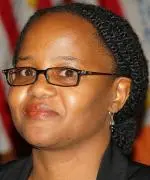 10. Edwidge Danticat
10. Edwidge Danticat
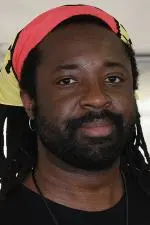 9. Marlon James
9. Marlon James
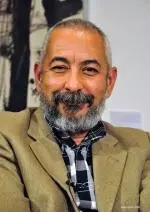 8. Leonardo Padura
8. Leonardo Padura
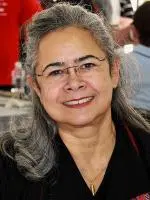 7. Esmeralda Santiago
7. Esmeralda Santiago
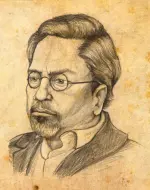 6. Guillermo Cabrera Infante
6. Guillermo Cabrera Infante
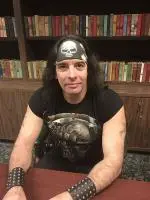 5. YOSS (José Miguel Sánchez)
5. YOSS (José Miguel Sánchez)
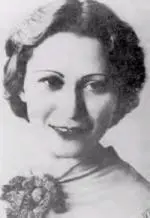 4. Julia de Burgos
4. Julia de Burgos
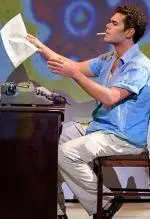 3. Reinaldo Arenas
3. Reinaldo Arenas
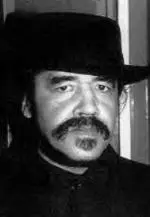 2. Pedro Pietri
2. Pedro Pietri
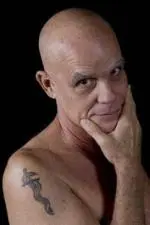 1. Pedro Juan Gutiérrez
1. Pedro Juan Gutiérrez








